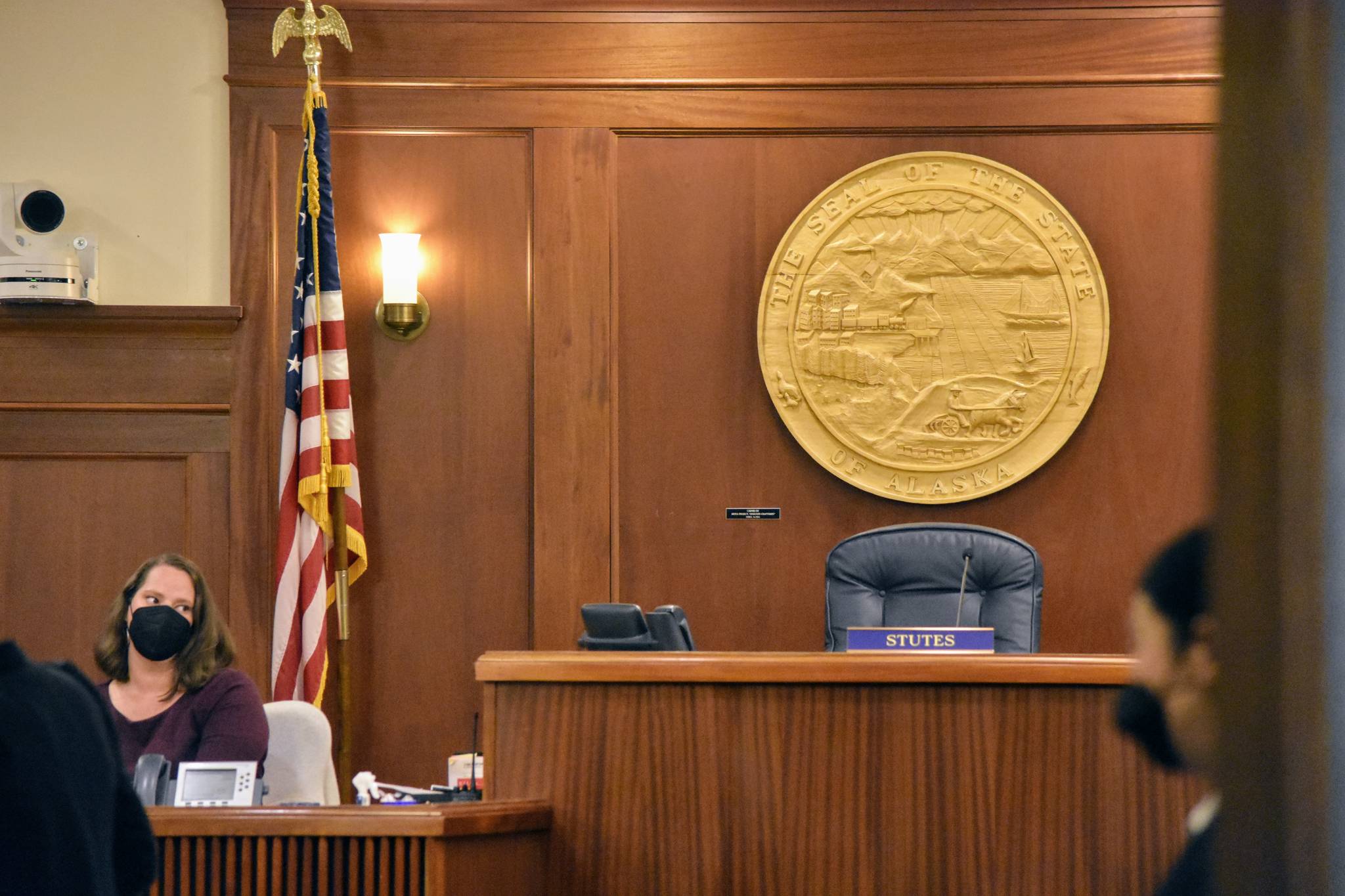State lawmakers ran into procedural problems Wednesday when the House Majority Coalition was unable to gather enough members for a quorum for a floor session of the Alaska House of Representatives. An appropriations bill was ready to be introduced, but when a floor session was called there weren’t enough representatives present for a full session.
A brief technical session was held shortly after 5 p.m. After, a news conferences was held with majority caucus members who accussed the House Republican Minority of avoiding their duty for political purposes.
House Speaker Louise Stutes, R-Kodiak, said the minority members’ absence was disappointing and called the decision obstructionism.
House Minority Leader Cathy Tilton, R-Wasilla, did not respond to multiple requests for comment.
[Legislators aim to finish budget, find fiscal solutions]
A floor session was called for 2 p.m. but had to be postponed when the 21 members necessary for a quorum couldn’t be found. Bells calling House members to a floor session were rung several times. Although they were in the building, members of the House Republican Minority didn’t show up.
“There’s 38 legislators in this building,” Stutes said. “We have the ability to have a quorum, members of the state house of representatives didn’t show up because they thought there was a chance things wouldn’t go their way.”
Stutes said after sending multiple messages, members of the minority responded with a list of requests for committee meetings and hearings on certain bills to be held as soon as tomorrow. Some of those items were already scheduled for hearings next week, Stutes said, and could be changed but not at such short notice.
Rep. Bryce Edgmon, I-Dillingham, told reporters the minority’s refusal to show up was because the majority was unwilling to pay the largest Permanent Fund Dividend possible.
On Tuesday, the House Finance Committee heard hours of public testimony on the governor’s budget bill, House Bill 3003, with many Alaskans calling on lawmakers to slash social services in favor of larger dividends while others urged the preservation of state services.
In an amendment to the bill, committee members reduced the amount of the PFD from the governor’s proposed $2,350 to $1,100.
The governor’s plan requires the Legislature to draw more than the 5% of market value of the state’s earnings reserve account of the Alaska Permanent Fund, a move Dunleavy says is meant to occur only once and is justified by the large increase the fund saw in the past year.
Lawmakers across the political spectrum have been strongly against overdrawing the ERA, saying it puts the state’s future earnings potential at risk.
The Permanent Fund posted record-breaking growth with the Alaska Permanent Fund Corporation showing the fund at $81.1 billion as of June 30 after growing by $15 billion during the 2021 Fiscal Year. The fund is in good shape, according to APFC CEO Angela Rodell, but she’s also cautioned against an overdraw of the ERA unless there are assurances lawmakers won’t do it more than once. In a July 27, interview with the Empire, Rodell said she wasn’t sure those kinds of protections are in place.
Dunleavy originally called a special session for Aug. 2 meant specifically to resolve the state’s fiscal issues, but divisions in the Legislature have meant the state’s budget is only partially funded. Legislative leaders were able to convince the governor to add a budget bill to the call of the session, but that means lawmakers’ attention is now divided between resolving the budget and trying to find fiscal resolutions — a key demand of members of the House Republican Minority and some Senate Republicans.
Many minority members have advocated for the largest PFD possible, with some calling for lawmakers to follow a statutory formula from the 1980s that would set this year’s PFD over $3,000 .Others —specifically the governor —have moderated that position by calling for a dividend based on a 50-50 split of POMV funds drawn from the Permanent Fund.
But that position leaves a gap in future funding that will require the state to make additional cuts or find additional revenues, and lawmakers have been unable to identify where either of those might be found.
The House Finance Committee finalized amendments on HB3003 Wednesday morning and intended to introduce the bill during a floor session in the afternoon.
A bill out of committee must first be introduced on the floor and then referred to legislative lawyers and financial experts for vetting. Once introduced, lawmakers can begin drafting amendments on a bill, but without a quorum to begin a floor session a bill can’t be introduced.
• Contact reporter Peter Segall at psegall@juneauempire.com. Follow him on Twitter at @SegallJnuEmpire.

